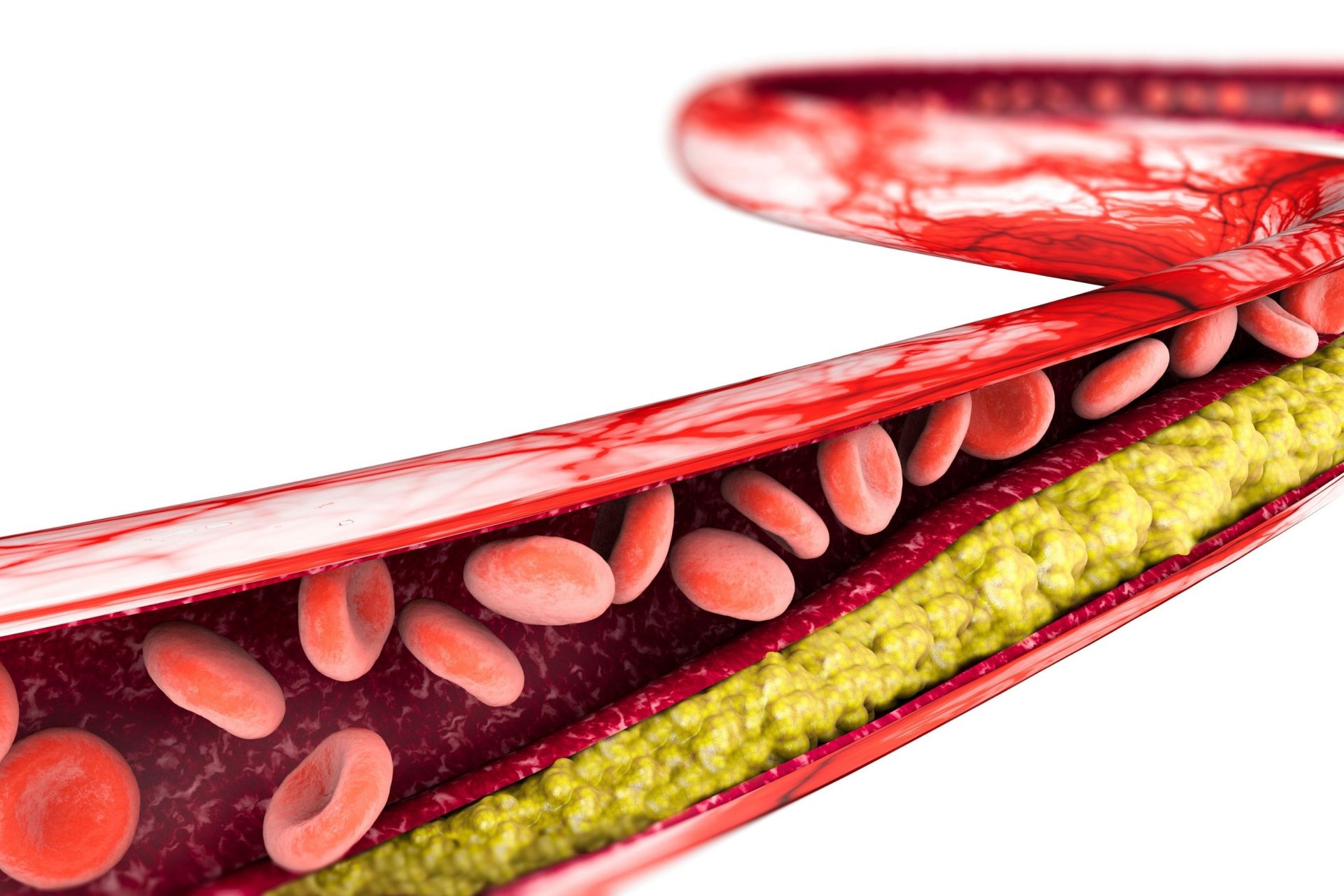High Cholesterol: Symptoms, Causes, Treatment
What are the symptoms of high cholesterol?
High cholesterol itself doesn’t usually cause any symptoms. In fact, many people may not realize they have high cholesterol until it leads to more serious health problems, such as heart disease or stroke. However, in some cases, high cholesterol can cause visible signs or symptoms. These may include:
- Xanthomas: These are fatty deposits that build up under the skin, usually around the eyes, elbows, knees, or hands. They appear as yellowish, waxy lumps or bumps.
- Xanthelasma: Similar to xanthomas, xanthelasma are yellowish patches that form on the eyelids. They are a type of xanthoma that can be a sign of high cholesterol levels.
- Arcus senilis: This is a white or gray ring that forms around the outer part of the cornea (the clear, front part of the eye). It can be a sign of high cholesterol, particularly in younger people.
- Corneal arcus: This is similar to arcus senilis but occurs in younger people. It appears as a white or gray ring around the cornea and can be a sign of high cholesterol levels.
- Tendon xanthomas: These are lumps that form on tendons, usually in the hands, feet, knees, or Achilles tendons. They can be tender and may limit joint movement.
It’s important to note that while these signs or symptoms may indicate high cholesterol, they can also be caused by other conditions. If you notice any of these signs, it’s important to consult a healthcare provider for a proper diagnosis and appropriate management.
What are the causes of high cholesterol?
High cholesterol can be caused by a variety of factors, including:
- Diet: Consuming foods that are high in saturated fats, trans fats, and cholesterol can raise cholesterol levels. These foods include red meat, full-fat dairy products, fried foods, and baked goods.
- Obesity: Being overweight or obese can increase the production of LDL (low-density lipoprotein) cholesterol, often referred to as “bad” cholesterol, and decrease the levels of HDL (high-density lipoprotein) cholesterol, often referred to as “good” cholesterol.
- Lack of physical activity: Regular physical activity can help raise HDL cholesterol levels and lower LDL cholesterol levels. A sedentary lifestyle can lead to higher cholesterol levels.
- Smoking: Smoking damages the walls of blood vessels, making them more susceptible to accumulating fatty deposits. It can also lower HDL cholesterol levels.
- Age and gender: Cholesterol levels tend to increase with age. Women typically have lower cholesterol levels before menopause, but after menopause, their LDL cholesterol levels often rise.
- Family history: A family history of high cholesterol or heart disease can increase your risk of developing high cholesterol. Some people inherit genes that can cause high cholesterol.
- Certain health conditions: Certain health conditions, such as diabetes, hypothyroidism, kidney disease, and liver disease, can increase cholesterol levels.
- Medications: Some medications, such as corticosteroids, diuretics, and some types of birth control pills, can increase cholesterol levels.
- Genetics: Some people have a genetic predisposition to high cholesterol. This can be due to inherited conditions such as familial hypercholesterolemia, which causes very high LDL cholesterol levels.
It’s important to note that high cholesterol often does not cause symptoms, so it’s important to have your cholesterol levels checked regularly, especially if you have risk factors such as a family history of high cholesterol or heart disease. Lifestyle changes, such as eating a healthy diet, exercising regularly, and not smoking, can help lower cholesterol levels and reduce your risk of heart disease. In some cases, medication may be necessary to manage high cholesterol.
What is the treatment for high cholesterol?
Treatment for high cholesterol typically involves a combination of lifestyle changes and, in some cases, medication. The goal of treatment is to lower LDL (bad) cholesterol levels and reduce the risk of heart disease. Here are some common treatments for high cholesterol:
- Lifestyle changes:
- Healthy diet: Adopting a heart-healthy diet can help lower cholesterol levels. This includes reducing saturated fats, trans fats, and dietary cholesterol, and increasing fiber-rich foods such as fruits, vegetables, whole grains, and legumes.
- Exercise: Regular physical activity can help raise HDL (good) cholesterol levels and lower LDL cholesterol levels. Aim for at least 150 minutes of moderate-intensity aerobic activity per week.
- Weight management: Losing excess weight can help lower LDL cholesterol levels and improve overall health.
- Smoking cessation: Quitting smoking can improve HDL cholesterol levels and reduce the risk of heart disease.
- Medications:
- Statins: Statins are the most commonly prescribed medications for high cholesterol. They work by blocking an enzyme in the liver that produces cholesterol. Statins can lower LDL cholesterol levels and reduce the risk of heart disease.
- Other medications: In some cases, other medications such as bile acid sequestrants, cholesterol absorption inhibitors, fibrates, or PCSK9 inhibitors may be prescribed to help lower cholesterol levels.
- Lipid-lowering therapies: For individuals at very high risk of heart disease or those who do not respond well to statins, other lipid-lowering therapies such as ezetimibe or PCSK9 inhibitors may be recommended.
- Regular monitoring: It’s important to have regular check-ups with your healthcare provider to monitor your cholesterol levels and adjust your treatment plan as needed.
- Healthy lifestyle habits: In addition to medication, adopting and maintaining healthy lifestyle habits, such as eating a heart-healthy diet, exercising regularly, maintaining a healthy weight, and not smoking, can help improve cholesterol levels and reduce the risk of heart disease.
It’s important to work closely with your healthcare provider to develop a treatment plan that is tailored to your individual needs and health goals. They can help determine the most appropriate treatment options based on your cholesterol levels, overall health, and risk factors for heart disease.




